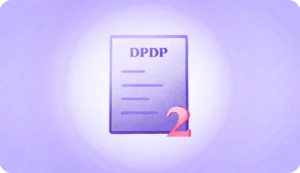The Digital Personal Data Protection Bill of 2023 heralds a significant shift in the data protection landscape, introducing a comprehensive framework to regulate the processing of personal data within India. This landmark legislation, passed by the Parliament in August 2023, extends its reach beyond the digital boundaries of India. It applies to the processing of personal data by entities outside India if it is related to offering goods or services within the country.
The Bill’s primary goal is to balance the individual rights to personal data protection with the need for lawful processing of such data. It defines ‘personal data’ as any information related to an individual who can be identified from that data, encompassing a broad spectrum of data types. The Act also introduces provisions for data processing, where consent plays a crucial role. Data processing must be for a lawful purpose, and consent must be explicit, informed, and unambiguous.
Under this Act, individuals, referred to as ‘Data Principals’, are granted rights including the right to obtain information about their data processing, correction, erasure of their data, and grievance redressal. The responsibilities of ‘Data Fiduciaries’ are clearly outlined, emphasizing the need for accurate data processing, data protection, and data erasure once its purpose is fulfilled.
The Bill also addresses the transfer of personal data outside India, with certain restrictions imposed by the Central Government, and outlines exemptions in specific scenarios. A significant development is the establishment of the Data Protection Board of India, entrusted with adjudicating non-compliance issues and imposing penalties for breaches.
Major Challenges for Businesses
The Digital Personal Data Protection Bill, though a progressive step towards robust data protection, presents several challenges for businesses. These multifaceted challenges affect large-scale organizations across technology, telecommunications, banking, finance, e-commerce and healthcare sectors due to the high volume and sensitivity of data they process.
The main challenges are:
Compliance Costs and Complexity: Implementation of the Bill poses a significant challenge, especially for small and medium enterprises. The cost of compliance could increase substantially, with the law proposing penalties of up to ₹250 crore for non-compliance. Businesses must also contend with the costs of complying with the law’s provisions, which include implementing technical measures for data protection such as data security, classification, managing consent, and providing mechanisms for data portability and erasure.
Understanding and Awareness Issues: A key concern is the level of awareness and understanding of the Bill’s provisions among both individuals and businesses. Businesses need to invest in new systems and processes, employee training, and hiring data protection officers. The challenge also extends to managing consent on a large scale and complying with data localization norms. The effectiveness of the law partially hinges on the capacity of the Data Protection Authority to enforce its provisions.
Data Localization and Global Operations: The Bill’s provisions on storing and processing personal data in India can be particularly challenging for businesses operating globally or those relying on cloud services based outside India. The legislation includes data localization requirements, which could complicate business operations. The law also gives the central government the authority to exempt certain Data Fiduciaries, including start-ups, from its provisions and to block public access to a given Data Fiduciary’s platform under certain circumstances.
Impact on Major Sectors/Industries
With the enactment of the Digital Personal Data Protection Bill, major sectors such as technology, telecommunications, healthcare, banking, finance, and e-commerce are facing the prospect of strict obligations. The volume and sensitivity of the data they handle necessitate a higher standard of compliance and protection.
The Bill, while excluding data localization requirements, potentially eases the burden by allowing data to be stored globally, which could lead to cost savings and efficiency for businesses of all sizes. Let’s explore these impacts in detail:
Technology and Telecommunications
The Bill introduces stringent compliance requirements for tech and telecom industries due to the sheer volume of personal data these sectors process. They must overhaul their data processing frameworks to ensure that personal data is handled in line with the new regulations.
This means investing in secure data processing and storage solutions, updating privacy policies, and ensuring transparent data handling practices. These sectors must also focus on user consent management, as the Bill mandates explicit consent for personal data processing.
Banking and Finance
Financial institutions collect and process vast amounts of personal data. Under the new Bill, these institutions must ensure that all data processing is done for lawful purposes and that the data is kept secure. They are also tasked with implementing robust systems for data portability and erasure upon the customer’s request, which can be particularly challenging given the complexity of financial data.
E-commerce
E-commerce businesses must adapt to the Bill by ensuring that all data collected, from consumer behavior to transactional information, has been consented to by the user. They must demonstrate transparency in collecting, using, and sharing consumer data and develop secure systems to protect this data.
Healthcare
The healthcare sector deals with sensitive personal data, and the Bill’s implications here are crucial. Healthcare providers must ensure that patient data is secure and handled with utmost confidentiality. The sector needs to adopt systems that can manage patient consent effectively and allow for easy access to and correction of their personal data.
Small and Medium Enterprises (SMEs)
SMEs may find compliance with the Bill challenging due to limited resources. The cost of implementing the required technical measures for data protection could be significant. They must invest in digital infrastructures to securely manage and store data, which may be a considerable transition from traditional methods.
Furthermore, the encouragement for digital data management over physical records speaks to the need for robust digitization solutions. This transition, however, may not be straightforward for smaller entities and family-run businesses that might lack the resources for such operational adjustments. The appointment of a Data Principal Officer (DPO) is also a significant step that companies must take to ensure compliance with the Bill, which involves drafting policies and procedures for data breach notifications and conducting periodic data security audits.
Platforms like HyperVerge can play a pivotal role in easing this transition. Their AI-powered identity verification and customer onboarding solutions are particularly relevant for industries adapting to the new regulations. Here’s how HyperVerge can help:
Automated Consent System: HyperVerge’s platform enables businesses to automate the consent management process, which is a critical aspect of the new Bill. The no-code platform allows for the easy customization of consent screens, ensuring that changes in consent requirements are promptly and efficiently communicated to customers.
Seamless Fallbacks for Consent Situations: Given the complex nature of consent management, particularly for large-scale operations, HyperVerge offers the capability to implement seamless fallbacks. This ensures a smoother customer experience even when navigating the various consent scenarios stipulated by the Bill.
Data Security and Compliance: With the Bill emphasizing data security and the imposition of heavy penalties for non-compliance, HyperVerge’s solutions could offer the necessary infrastructure to protect personal data. Their technology can aid in meeting compliance requirements through secure data processing and storage solutions.
Digital Transformation Support: As the Bill pushes companies towards digitization of personal data, HyperVerge can support small and large organizations alike in making the digital leap, ensuring that their digital data management is sustainable, secure, and compliant with the new legal framework.
Embracing Change: Your Next Steps in Data Protection Compliance
As companies grapple with the intricacies of the Digital Personal Data Protection Bill, the path forward is clear: proactive adaptation and compliance are not just necessary but urgent. Businesses must seek solutions that offer simplicity and efficiency in aligning with the new legal requirements. This is where a platform like HyperVerge becomes not just a tool but a partnership for navigating data protection complexities.
HyperVerge’s AI-powered solutions are designed to tackle the challenges head-on, offering automated consent systems and seamless fallbacks for diverse consent situations, which is critical under the new Bill. Their platform simplifies the transition for companies of all sizes by providing robust, scalable, and secure identity verification and customer onboarding solutions.
As you consider the steps your company needs to take in order to be compliant with the new data protection bill, HyperVerge offers the expertise and the technology to ensure you comply with the Bill and enhance your operational efficiency and data security. By signing up for a free demo at HyperVerge, you can explore how our platform helps your company to seamlessly adapt to the new regulations.





